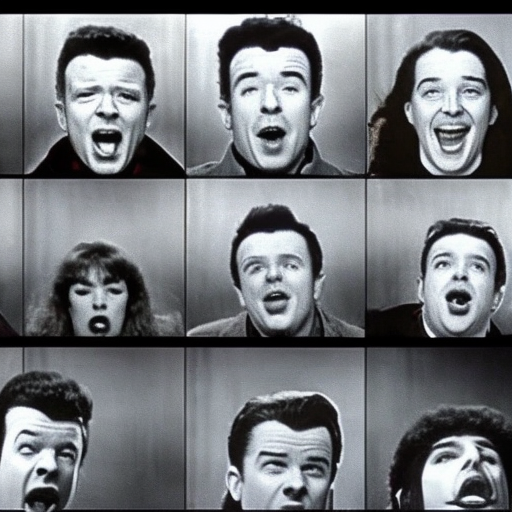Rick-Rolling: A Prank Turned Internet Phenomenon
Rick-Rolling is an internet phenomenon that involves tricking someone into clicking on a link that leads them to the music video for Rick Astley’s 1987 hit song, “Never Gonna Give You Up.” The prank gained popularity in the mid-2000s and has since become a cultural meme, often used to surprise and amuse unsuspecting internet users.
The Origins of Rick-Rolling
Rick-Rolling originated on the imageboard website 4chan in 2007. Users would post links that appeared to lead to something interesting or relevant but instead redirected to the music video for “Never Gonna Give You Up.” The term “Rick-Rolling” itself came from a combination of Rick Astley’s name and the act of being “rolled” or tricked into watching the video.
The Spread of the Phenomenon
Rick-Rolling quickly spread beyond 4chan and became a widespread internet prank. It gained momentum through social media platforms like Facebook and Twitter, as well as email chains and online forums. The element of surprise and the catchy nature of the song contributed to its viral success.
Popularity and Cultural Impact
Rick-Rolling has become an iconic part of internet culture. The prank has been used in various contexts, from harmless jokes to political statements. It has been employed by individuals, organizations, and even celebrities. The widespread recognition of the prank has led to its inclusion in popular media, such as television shows, movies, and advertisements.
Legacy and Endurance
Despite being a prank that originated over a decade ago, Rick-Rolling continues to have a lasting impact on the internet. It has become a symbol of internet humor and a testament to the power of viral content. The prank’s endurance can be attributed to its simplicity and the nostalgia associated with the song. Additionally, the internet’s ability to keep jokes alive through memes and remixes has contributed to its longevity.
Legal and Ethical Considerations
While Rick-Rolling is generally seen as a harmless prank, it does raise some legal and ethical concerns. Redirecting someone to a different website without their consent can be seen as a form of deception. Additionally, using copyrighted material, such as the music video for “Never Gonna Give You Up,” without permission raises copyright infringement issues.
Alternatives and Variations
Over time, variations of Rick-Rolling have emerged. One example is the “Rick-Rolling Duck,” where a video of a duck quacking is disguised as the music video. Another variation is the “Rick-Rolling Phone,” where a link is shared that supposedly leads to a phone number but instead plays the song. These variations add a new layer of surprise to the prank and keep it fresh for those who are already familiar with the original.
Conclusion
Rick-Rolling is an internet phenomenon that originated on 4chan and involves tricking someone into watching the music video for Rick Astley’s “Never Gonna Give You Up.” The prank quickly gained popularity and became a cultural meme, spreading through social media and other online platforms. Despite its age, Rick-Rolling continues to be a recognizable and enduring part of internet culture, with variations and remixes keeping it fresh. While it is generally seen as a harmless prank, it does raise legal and ethical concerns. Nonetheless, Rick-Rolling remains a testament to the power of viral content and the enduring nature of internet humor.












